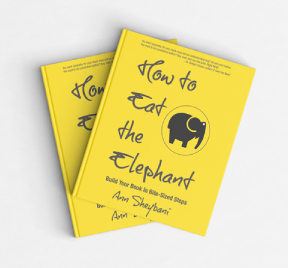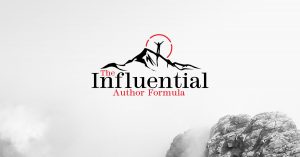Writing
What I’m reading now: Barnflower
March 6, 2023
In Ireland, I would sit on the couch and watch my neighbor’s grazing cows through the living room window. Each morning John’s border collie would hit the pasture and drive the herd down the hill to the milking parlor. The dog would appear again in the evening when we were motivating for dinner, accompanied by the sound of John’s ATV and his shouted instructions.
From that window, I’d witnessed the changing of the dog guard. First it was Ben, then, when Ben got old and died, some dog John had to get rid of him because he was too friendly with the cows. Then it was Sam the asshole, followed by Spot.
Occasionally, one of John’s cows would bust through a fence or find a way around a hedgerow and wind up in our yard. We’d call the house, and John would come up with the dog and a flashlight, then swat the cow down the dirt road. If it wasn’t a cow on the loose, it was something else: A broken arm, a cow or two that failed the TB test, the artificial insemination dude who’d failed to show.
John’s family had run that dairy farm for generations. He figured he was the last of the line because he couldn’t compete with the bigger guys up the hill, who were industrializing the process. He had no idea what his three-year-old son, who loved tractors, would do when he came of age.
The end of an era. His and ours.
At some point, a lifestyle you love ceases to be viable.
An end to an era is what Carla Panciera’s memoir, Barnflower: A Rhode Island Farm Memoir is about.
I’d received an ARC (Advanced Reader’s Copy), which I’d put off reading, mostly because I knew it would be beautiful. We’d attended the same writer’s conference and I was jealous of Carla’s talent back then. Her workshopped piece had stuck in my head for years because of its quiet, lyrical quality. A version of it is a chapter in this book, “The First Story She Tells Herself”. If it had taken Carla thirty years to write this book, I was going to be faced with a very high bar for my own work. So there the ARC sat.
Of course, Carla’s use of language and her choice of details grabbed me by the throat. Again. “I sat on a metal chair and read advertisements for stalls for rent and companion donkeys on a cork board. “ “…leaving a window as big as an album cover that he scrubbed and swabbed with iodine.” “My father pried the crate open with the same jackknife he used to remove my splinters, to scrape the oil off manure spreader bolts, to cut bailing twine.”
They’re not ornate, these details, just perfect. They due double- and triple-duty.
Many of the details placed me back to my own childhood in the 1970’s. The Danskin bathing suits and the baby oil slathering at the beach; Guiding Light, the soap opera our mothers all watched; the shag haircut, which only the television character Mrs. Brady could pull off.
Craft aside, it was Carla’s recounted experience on her family dairy farm that gave me insight into my neighbor’s way of life, which I’d found endlessly fascinating. It gave credence to the lessons I took away from John’s entire approach: You just do what needs to be done without complaint. Carla’s dad, Aldo, operated from the very same user’s manual. “He expected everyone around him to be busy, judged people by the quality of their work and their stamina.”
That’s a lost art, working hard without the drama, a thing of the past that won’t be coming back, which makes me feel sad, and a little old. Like grandma yearning for the good ole’ days.
Yet, how do you convince a reader who doesn’t have a fascination with dairy farming, who didn’t grow up during the 70’s of its relevance? You focus on universal themes.
These are themes that many people can relate to, whether it’s because they incorporate common life experiences or are simply concepts of human nature that most readers can understand. Universal themes allow readers to connect to the story emotionally. Some of the more common ones found in literature include individual struggle towards a personal goal, a person’s struggle with humanity, falling in love, life cycles, karma, coping with tragedy, adolescence and discovering the world around us. These are universally understood by most readers due to how easily they can be applied to their own lives.
Barnflower is about the marriage of two people who want very different things out of life, who make it work, nonetheless. “My parents were convinced that the only course of action we needed to take was to get our work done.”
It’s about loyalties and loving a parent despite their imperfections. “You don’t keep a full-grown bull around once his temperament begins to change. Unless you are my father.”
It’s about complicated in-laws who don’t cotton to outsiders, ever. About sibling rivalry, and jealousy, and the shit things you do because you’re a kid.
It’s about wanting two things at once, and being afraid to choose because, invariably, you let someone down. It’s about knowing that whatever you choose, you won’t alter the inevitable. “There was no good time to leave. No time when everything was finished, mended, paid for.”
It’s about love and forgiveness. It’s about understanding your nature, and eventually accepting yourself for who you are, so you can accepter others for who they are.
And it’s about legacy. “He (Aldo) had loved his life’s work. He had made a difference. He wasn’t, as he had become these last few months, a builder of doghouses, or a harvester of black walnuts, or a collector of golf balls. He was a cowman, a man who had the rare and innate ability to assess cows and the bulls to use with them that would produce the best offspring. And he had picked us out a cow.”
But mostly it’s about incorporating loss with love, deciding what it all means. Seeing that, when all is said and done, the frustrating people you love most never really go away. Evidence of them abounds. Mostly because you are who you are because of them, for good and for bad.
If you want to understand what memoir is, read this book, or at the very list buy it while it’s on pre-order. Good craft, read this book. If you want to feel connected to life, death, constancy, effort, and your own value system, read on.


